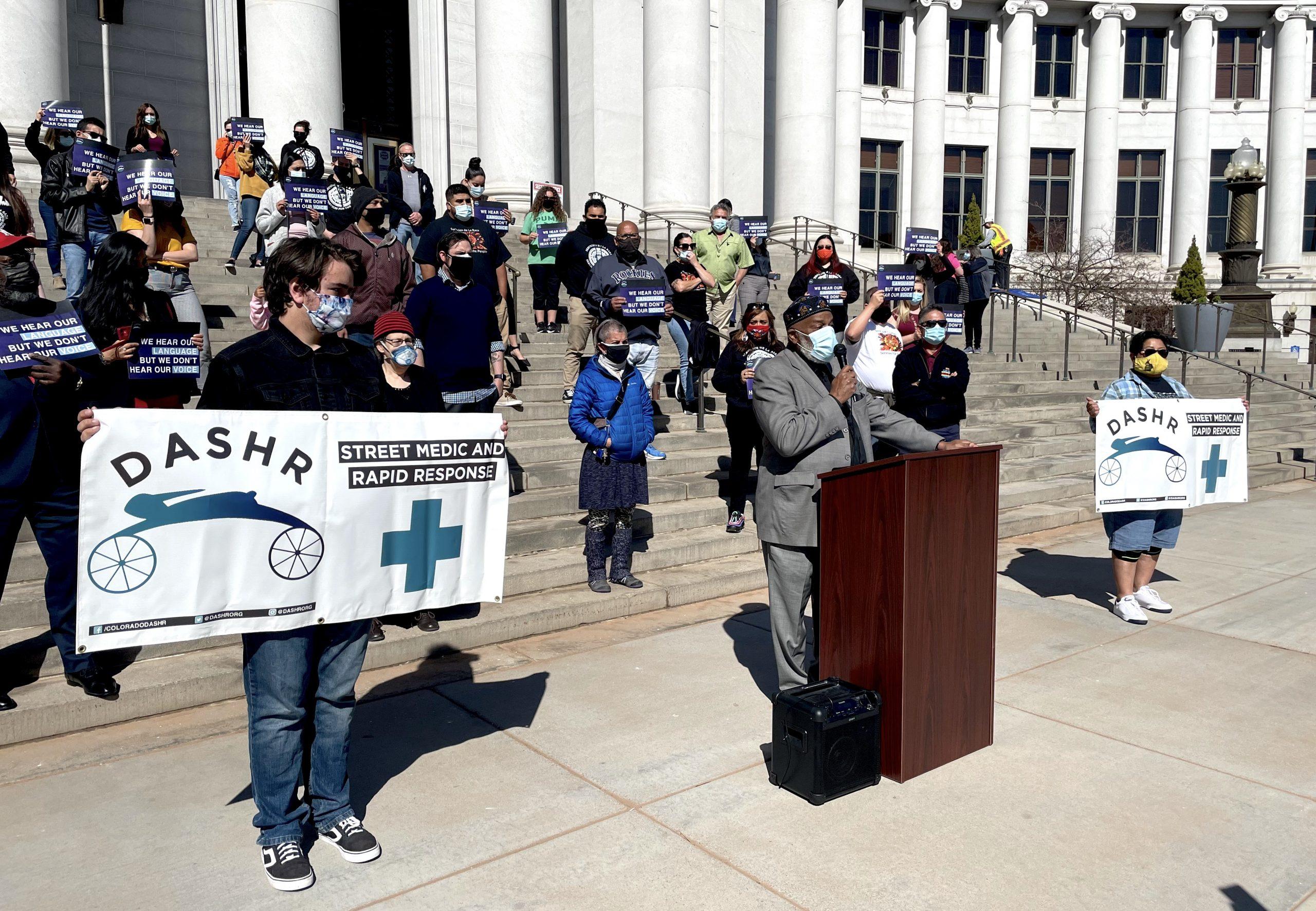Community-oriented groups that were advocating for policing alternatives long before the start of a city-managed program that replaces cops with social workers want to take the wheel and put the government in the passenger seat.
Denver's Support Team Assisted Response program, or STAR, has gained national attention for sending mental health professionals to calls that police officers might otherwise take. But key players, who have long pushed decision-makers to create a system that sends behavioral health professionals to people in crisis -- not people with guns and badges -- say the city government has hijacked their vision.
"STAR was the compromise. It was not the vision," said Vinnie Cervantes, who runs Denver Alliance for Street Health Response, during a press conference on the steps of city hall Thursday. "We want to remind you all about that because we are still intent on creating that vision."
That vision includes sending people to calls who can relate to people in crisis personally, not just professionally, organizers said. A proposal that lays out the intent of the program says STAR should be "culturally responsive" and should "include responders and providers who share lived experiences and identities with Denver's diverse population."
STAR began under the management of the Denver Police Department but has moved under the Denver Department of Public Health and Environment. The people doing the work on the street, however, are government contractors -- licensed behavioral health professionals from the Mental Health Center of Denver and paramedics from Denver Health. In their first six months, they responded to people in crisis about 750 times. None of those interactions led to arrests by police.
But Reginald Holmes, a pastor who started the Family Advocacy Crisis Education Intervention Team after a Denver police officer killed 15-year-old Paul Childs in 2003, called that response "clinical." He said people like Childs, a developmentally disabled Black teenager, might still be alive today if officers could "speak the language" of the people they were helping.
The press conference came a week after Cervantes said he and other groups were blindsided by details of the STAR expansion presented at a city council meeting. The city government has put contracts out for bid. On Thursday, the groups demanded that the Hancock administration's health department and the Denver City Council immediately adopt their roadmap for the program and for an advisory committee that leads STAR's development.
They also demanded that no decisions be made without the "community driving the conversation" and for the Hancock administration, elected officials and journalists to "honor the concept of a community-driven program."
DASHR has been a part of the conversation with the city's police and public health departments around STAR's founding and its expansion. So has the Greater Denver Interfaith Alliance, Denver Homeless Out Loud, Colorado Cross-Disability Coalition, Northeast Denver Islamic Center, Servicios De La Raza, and Denver Justice Project, all of whom stood in solidarity in favor of taking community control of the program.
"We're here to say get out of the way. Let community take the driver's seat, said Rudy Gonzalez, director of Servicios de La Raza. "We'll let you in the passenger's seat. We need you, government, as passengers. We need the resources so we can empower our communities and do our work in determining our own destiny and who we serve."
Over 30 percent of the people contacted were of "unknown" race, according to data from the program data, which was also problematic for Holmes. The STAR response is centered around downtown, which he believes is to appease business interests and marginalizes people of color in other neighborhoods.
While advocates have worked for a long time for a STAR-like response to crises, last year's protests that forced a reckoning with systemic racism has fueled local organizers.
"We have people in the city that want to do business as usual," said Imam Abdur-Rahim Ali, an imam at Northeast Denver Islamic Center. And this was a new environment, a new paradigm, and we're not going along with that."













